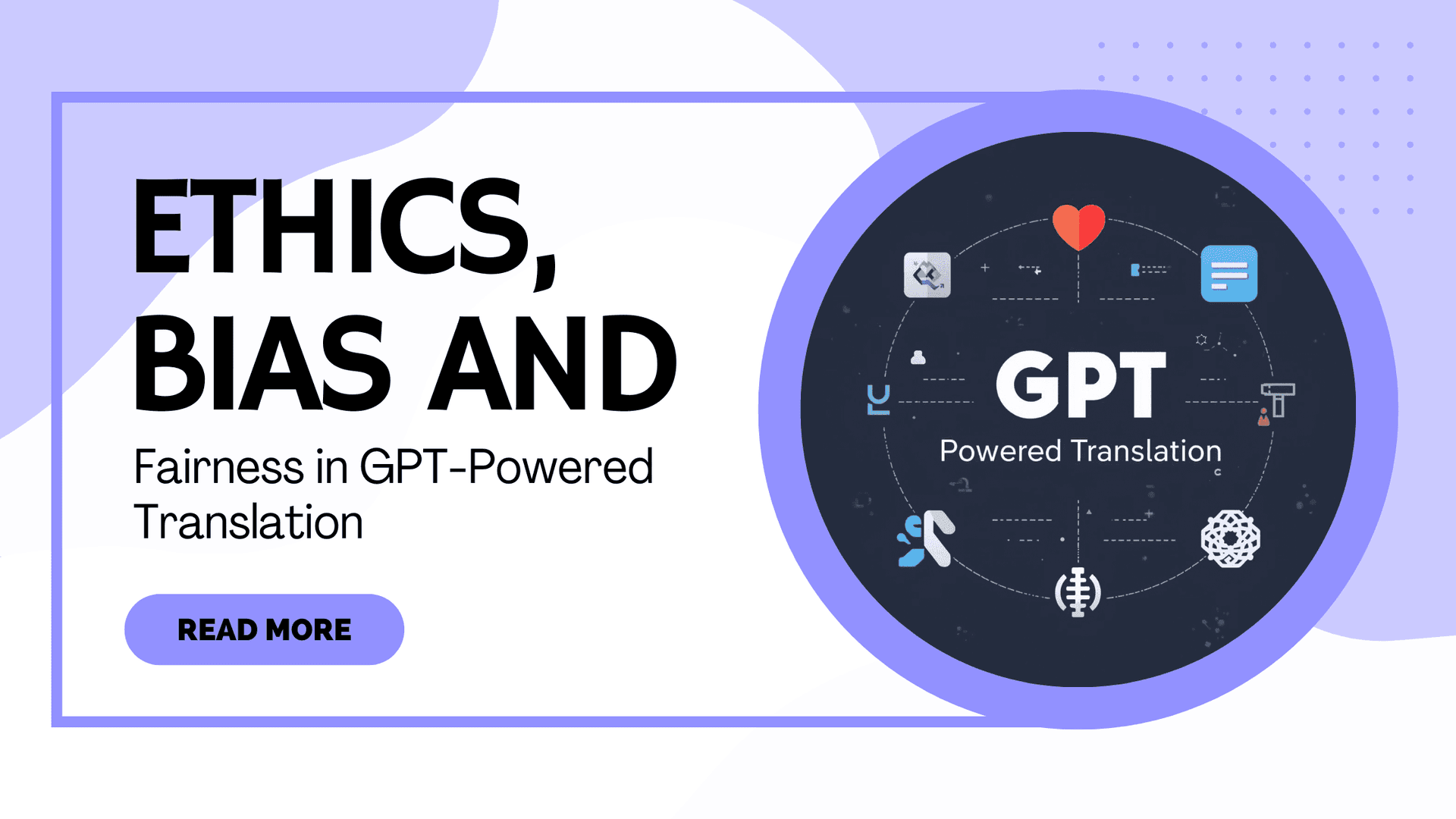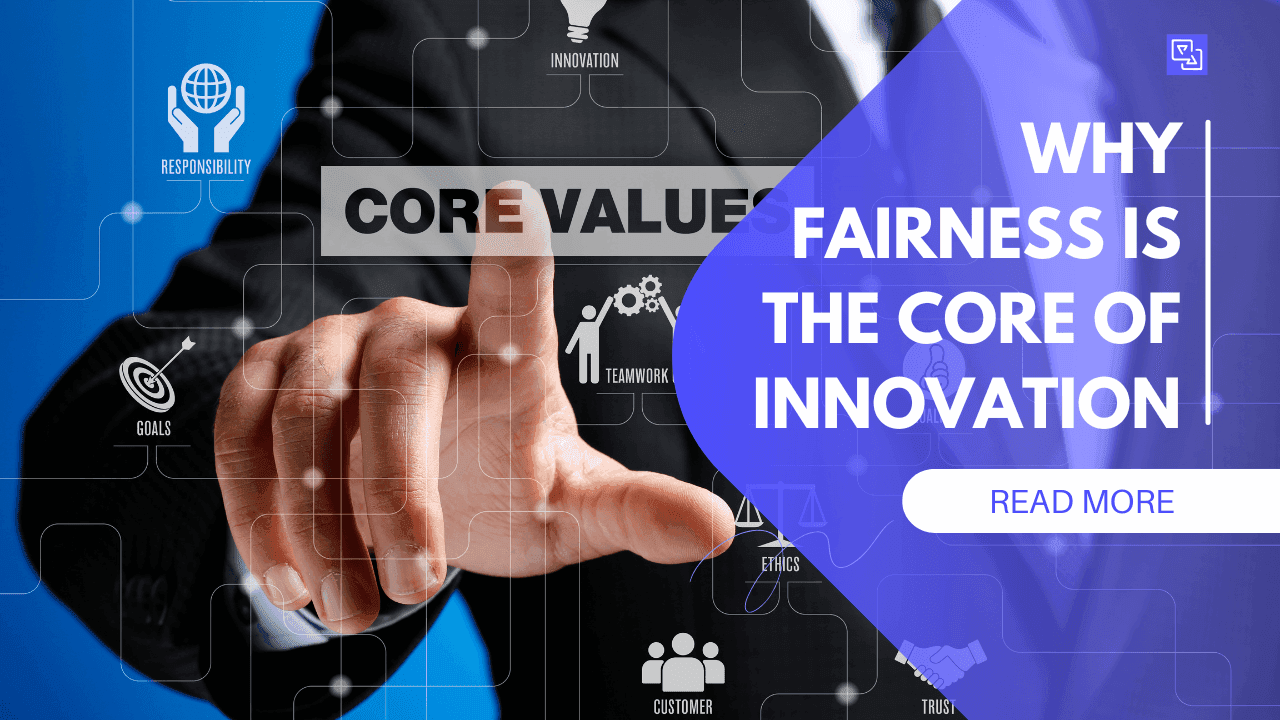Ethics, Bias and Fairness in GPT-Powered Translation

Is it possible for AI to deliver a non-biased translation?
In a world where people and businesses are interconnected, the aspect of fairness and the aspect of ethics in GPT translation are not anymore by-products, they have emerged as the very foundation for trust, respect for the cultures and communication that include everyone.
The Hidden Challenge: When Translations Are Biased
Translation gives the impression of being a straightforward process just swapping one language for another. But the truth is, every language carries its own emotion, character and cultural background. When AI translation systems like ChatGPT translator attempt to deal with those subtleties even a slight bias in the data can completely change the meaning and tone of a message.
Biased translation means when an AI or translator unintentionally changes or favors one perspective, culture and gender over another leading to unfair, inaccurate and culturally insensitive results.
As an illustration:
A subtle gender bias in the translation of a business email might result in different leadership roles based on the language used.
If healthcare instruction were translated and cultural misunderstanding existed the result would be confusion and perhaps even harm.
A marketing message that does not capture the tone and slang may be perceived as disrespectful in another area.
These illustrations underscore a significant issue: AI translation mirrors the input data it is trained on. In case that data includes stereotypes or under representation the resulting translation might unintentionally exaggerate those biases.
That is why moral AI translation is coming to the forefront of the modern companies’ priorities who feel that their global credibility and cultural integrity are at stake.
The Role of GPT Translator in Promoting Fairness
Our GPT translator was developed with one principle in mind, AI should support humans not the other way around.
Combining natural language understanding, large-scale data analysis and ongoing ethical review, GPT translation is aimed at providing translations that are not only accurate but also respectful, transparent, and culturally sensitive.
Here’s how it helps to ensure fairness:
Bias-Aware Training:
The GPT translation system constantly checks its training data for biases. If a certain demographic, tone and culture is overrepresented the algorithm learns to reduce that bias.
Cultural Context Recognition:
GPT translation is not just about word-for-word translation. It captures meaning, tone and intent, adjusting phrases to the target culture while keeping the original message intact.
Human-in-the-Loop Validation:
Ethical translation is not totally automated. ChatGPT translation models are improved with the help of real linguistic experts who examine outputs, point out biases and train the AI to provide better responses.
Transparency and Explain ability:
Every decision made by the GPT translator is done with the intention of being able to trace it back. The users can comprehend the way the translations were created and the reason why some language choices were made.
Continuous Feedback Loop:
The feedback of real users is the way through which GPT translation gets better and learns from the real situations of use to eliminate bias and enhance cultural fairness.
Why Ethical Translation Matters for Businesses

Here are the reasons that made businesses to put ethical GPT translation on the top of their list more than ever:
1. Building Global Trust
If consumers are aware that your message is both precise and culturally right, they would be more likely to trust your brand. ChatGPT translation enables you to communicate with the audience without the risk of losing the tonality or respect.
2. Enhancing Inclusivity
The use of ethical AI translation gives rise to more inclusive communication. It does not matter if it is the case of accessibility in education, healthcare and customer support GPT translate is there to make sure that no one is deprived of proper and unbiased information.
3. Protecting Brand Voice
GPT translation tools are not just word substitutions, they are the protective walls around your brand character. From formal reports to cheerful marketing Chat-GPT translation generates a human-like voice that is present regardless of the location where it is read.
4. Meeting Legal and Ethical Standards
The world is undergoing an increase in regulations pertaining to AI transparency and fairness. Businesses using an ethically trained GPT translator will not only keep up with the regulations but also be prepared for the future of AI governance.
Multilingual Healthcare Communication in the Real World
A global healthcare startup that employed ChatGPT translation to converse with patients in more than 25 languages is a good example of the situation. They initially had problems where the different translations of neutral medical terms were sometimes wrongly interpreted as gendered, thus doing the wrong thing unintentionally.
After the switch to the GPT translator the system was able to pick up on linguistic patterns and to do that it not only flagged potential biases but also made slight changes in wording while still preserving accuracy. What did they get out of it? Health materials that were clearer, more inclusive and therefore more trusted by patients.
This success was machine imperfection but AI with empathy and accountability built up.
Cross-Culture Marketing Another Case
The travel company that intended to launch campaigns in Asia, Europe, and South America with the help of Chat GPT translate faced a dilemma regarding the possible translation of their slogan “Feel the Freedom” to “Escape Responsibility” by certain regions though the latter was quite subtle; it was a powerful cultural misalignment.
The use of GPT translation which focuses on understanding the context allowed the team to come up with the slogan in phrases that were not only relevant but also acceptable for each market.
Result:
The engagement rate has gone up by 40%.
Local teams have noticed that audiences are more positive now.
The company has gained a reputation for being culturally sensitive.
To learn: The use of ethical GPT-powered translation does not only make the connection by correcting the errors but also amplifies it.
The Future: Human-Centered AI Translation
GPT translation is fundamentally a transformation from mechanical correctness to human comprehension. AI does not obliterate the role of the translator, it rather encompasses the provision of smarter and more ethical tools to the translators.
The upcoming stage of ChatGPT translation will develop henceforth into a more sophisticated text-to-text transformation. It will:
Acquire knowledge through instantaneous global user feedback.
Identify the emotional tone of the text and the intention of the audience.
Provide ethical assurance layers that warn of possibly biased content before it gets published.
All these developments are setting a new benchmark where GPT translate is not merely a translator but a cultural mediator that honors human diversity while still closing the gap of communication.
How GPT Translator Simplifies Ethical AI for Businesses
The application of ethical translation principles does not require an expert in AI. The GPT translator makes it simple for all-sized teams.
The way it works for you is as follows:
Plug and Play: The existing tools are integrated without any hassle.
Adaptive Learning: It becomes a more competent canner of your industry tone and brand ethics the more you use it.
Multi-Industry Flexibility: GPT translation adapts to your field's cultural standards from finance, and education to healthcare, and retail.
User Control: The businesses have complete visibility of the translation process, thereby ensuring total transparency.
All these characteristics combined, Chat GPT translate transforms the idea of ethical AI translation into a reality and a daily solution.
Why Fairness Is the Core of Innovation

The ideal translation process is the one in which each and every party involved is heard equally. The system values different ideas and ensures that the dissemination of thoughts, products and narratives across languages is done without any alteration or oppression.
When a company opts for fairness by utilizing a tool like the GPT translator, it is not only improving internal communication but also worldwide communication in general and thereby promoting a world where technology is none other than a mirror to humankind's finest traits.
The Takeaway
AI-based translation has started to change the way people connect with each other, but ethical considerations will be the ones directing growth.
With the GPT translator, you are not only acquiring a clever translation tool; you are also accepting a set of beliefs that include fairness, openness and human dignity. Every single word counts and also every single meaning attached to it in areas like marketing or medicine.
In an environment where languages act as intermediaries, ethical AI is the one that guarantees that these intermediaries are robust, equitable and accessible to all.
The Future of Fair Translation
The further development of AI will lead to the recognition of fairness as the most important reason for trust in the future. Companies will no longer limit their inquiry to “How quickly can it translate?” but rather will expand it to, “Will this translation be trusted to give equal treatment to all languages, cultures, and contexts?”
This is the genuine challenge for contemporary machine translation. In a global marketplace where words create bonds, fairness is not just an attribute of the technology it is a strategic necessity for the business.